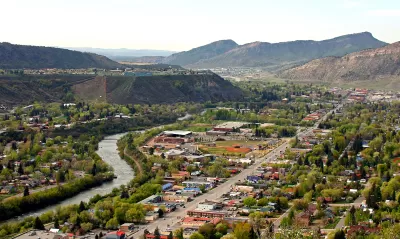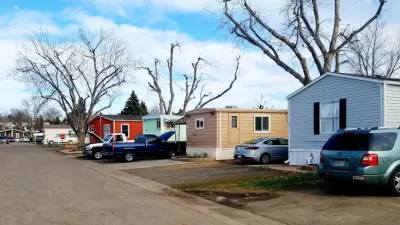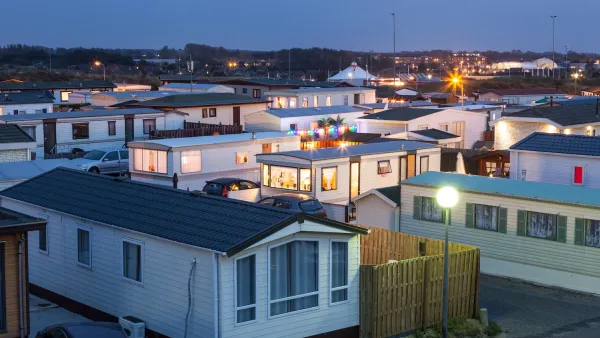The model of combining housing co-ops with community land trusts could show a new path forward for increasing housing stability.

According to an article by Kirbie Bennett and Jamie Wanzek in High Country News, a Colorado manufactured housing community offers “one model for how to preserve affordable housing, with the potential to reshape housing in the West in a way that allows residents to guide the discussion.”
When threatened with a buyout by a notorious institutional investor, residents of the Westside Mobile Home Park banded together to make their own offer. “With the support of Elevation Community Land Trust, Westside’s residents were able to purchase their park, becoming one of the six community land trusts in Colorado. It was the first time that Elevation applied the community land-trust model to a mobile home park.”
The Durango example is unique because “It’s generally uncommon for housing co-ops to partner with community land trusts,” in large part because they tend to exist in different places. “Now owned jointly by its residents and Elevation, the park operates as a community land trust, which removes land from the real estate market and transforms it into community-owned property.”
As Planetizen has noted in the past, manufactured housing has long served as a key source of affordable housing around the country. “Across the country, 22 million people live in manufactured homes. While nearly 80% of residents own their mobile homes, Esther Sullivan, an associate professor of sociology at University of Colorado-Denver, notes that only 14% own the land beneath their homes.” Increasingly, corporate owners are buying up these parks and raising the land lease rates on residents who can’t afford the rent increases.
“In years to come, residents, with the help of the land trust, intend to redevelop the park by removing the trailers and transforming the units into homes. The co-op and land trust are currently in the early stages of redeveloping the park, and residents are leading those discussions.”
FULL STORY: How a mobile-home park saved its community from a corporate buyout

Planetizen Federal Action Tracker
A weekly monitor of how Trump’s orders and actions are impacting planners and planning in America.

San Francisco's School District Spent $105M To Build Affordable Housing for Teachers — And That's Just the Beginning
SFUSD joins a growing list of school districts using their land holdings to address housing affordability challenges faced by their own employees.

The Tiny, Adorable $7,000 Car Turning Japan Onto EVs
The single seat Mibot charges from a regular plug as quickly as an iPad, and is about half the price of an average EV.

Seattle's Plan for Adopting Driverless Cars
Equity, safety, accessibility and affordability are front of mind as the city prepares for robotaxis and other autonomous vehicles.

As Trump Phases Out FEMA, Is It Time to Flee the Floodplains?
With less federal funding available for disaster relief efforts, the need to relocate at-risk communities is more urgent than ever.

With Protected Lanes, 460% More People Commute by Bike
For those needing more ammo, more data proving what we already knew is here.
Urban Design for Planners 1: Software Tools
This six-course series explores essential urban design concepts using open source software and equips planners with the tools they need to participate fully in the urban design process.
Planning for Universal Design
Learn the tools for implementing Universal Design in planning regulations.
Smith Gee Studio
City of Charlotte
City of Camden Redevelopment Agency
City of Astoria
Transportation Research & Education Center (TREC) at Portland State University
US High Speed Rail Association
City of Camden Redevelopment Agency
Municipality of Princeton (NJ)





























